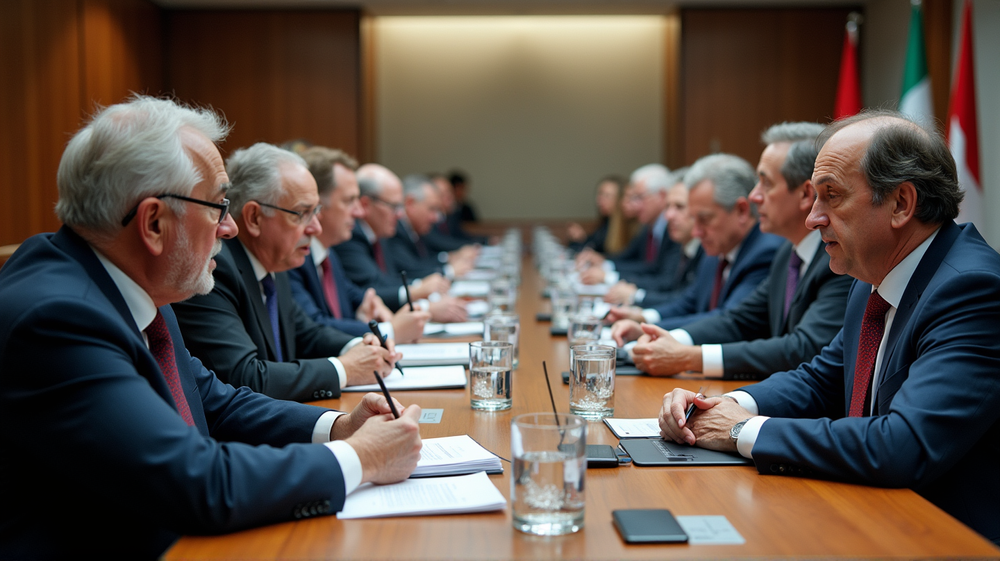The European Union is poised on the threshold of a pivotal new aid deal with Israel, aiming to extend humanitarian lifelines to the beleaguered Gaza Strip. As European ministers congregate in Brussels, the contours of this agreement, while promising, are nebulous, evoking a need for clarity and actionable plans from Israel. The envisioned effort seeks to extend an olive branch over political divides, yet its success hinges on transparent execution.
An Ambitious Yet Murky Deal
Amidst impassioned dialogue, the EU is striving to fortify aid routes into Gaza following establishment of this novel arrangement with Israel. The timing is critical, orchestrated by EU foreign policy chief Kaja Kallas and Israeli Foreign Minister Gideon Saar, after a protracted period of conflict has filtered hope through the sieve of pragmatic diplomacy. Yet, according to AP News, the exact machinations of how aid will traverse these turbulent landscapes remain veiled in uncertainty.
On-the-Ground Realities
A key priority, as delineated by EU officials, is to unveil avenues for more aid trucks into Gaza. Opening border crossings is imperative, seen as the compass to steer humanitarian support deeper into affected areas. However, some voices within the EU echo with reservations about sustainable collaboration with Israeli entities citing ethical concerns. The essence of this deal lies in its enactment, as Kallas underlined, urging a ceasefire as an incontrovertible step towards real progress.
Internal and External Pressures
Inside the EU, there’s palpable urgency for action, fueled by mounting public pressure demanding accountability for Israel’s military strategies in Gaza. Protests like the recent one at the European Commission highlight growing public advocacy for assertive European diplomacy in areas beyond mere negotiation. The European Commissioner’s remarks underscore a dire need for ceasefire and safe operational conditions for humanitarian allies on the ground.
Treading Political Tensions
European nations, including Ireland and Spain, advocate possibly recalibrating EU-Israel relations amidst the ongoing strife, emphasizing that humanity must precede politics. The European Commission’s reports indicate potential human rights violations by Israel, yet the bloc remains split on a definitive stance.
Hope Amidst Conflict
Conversations continue, laced with hope that the latest diplomatic undertakings might facilitate not just temporary relief but signal a change in the tide. The EU plans bi-weekly updates on the deal’s progress remain central to their accountability framework, allowing the bloc to respond adaptively to changing ground realities in Gaza.
The ongoing dialogue paints a landscape of potential and peril, illustrating the intricate dance of diplomacy. This nascent EU-Israel partnership, while fraught with complexities, aspires to plot a course towards sustained peace and relief for the desperate Gaza populace.












